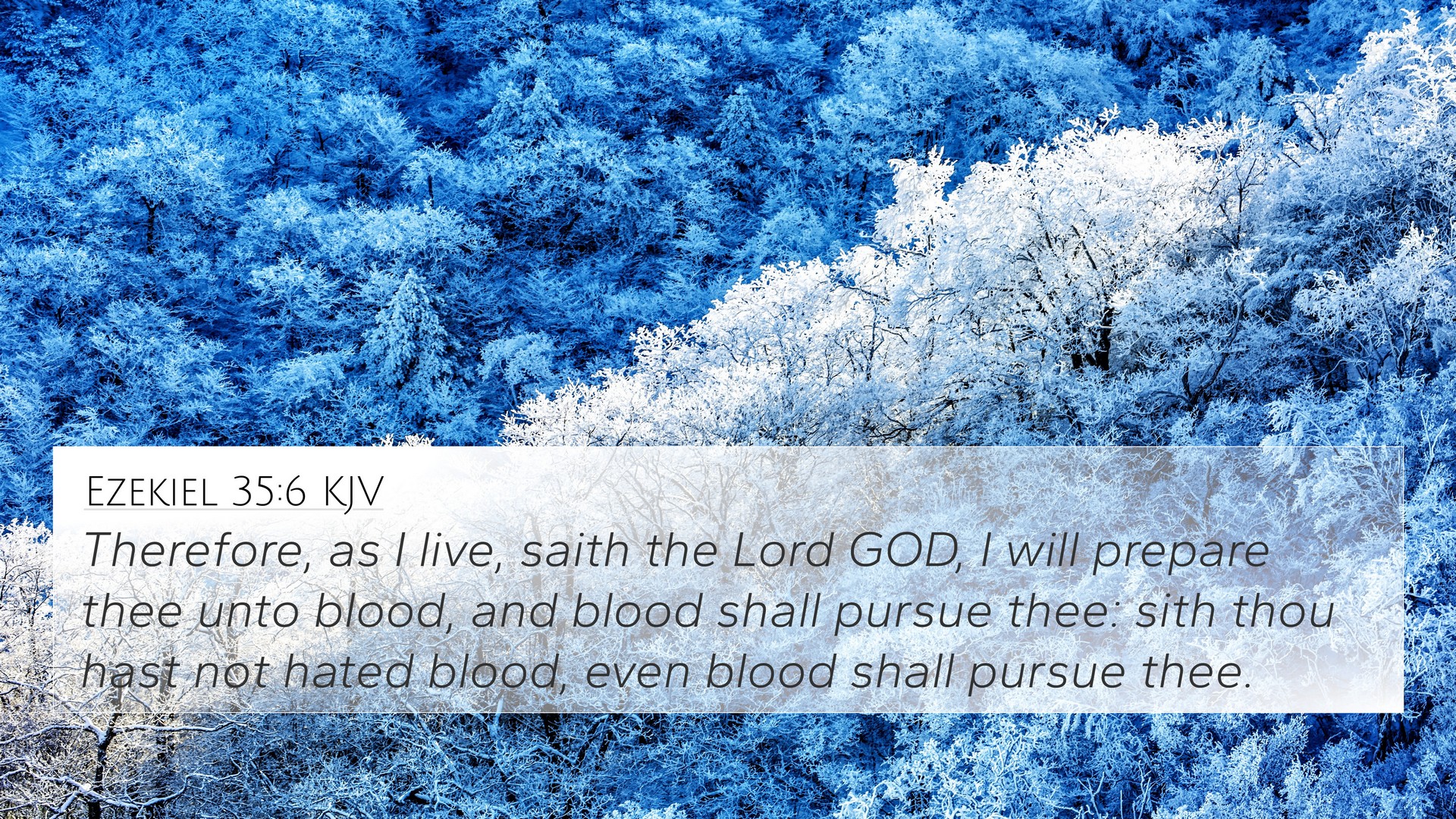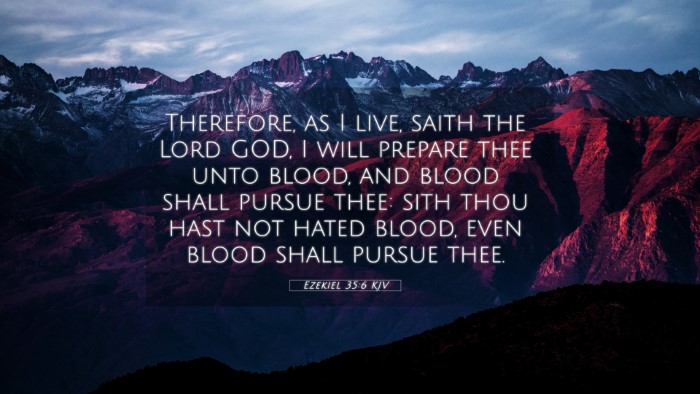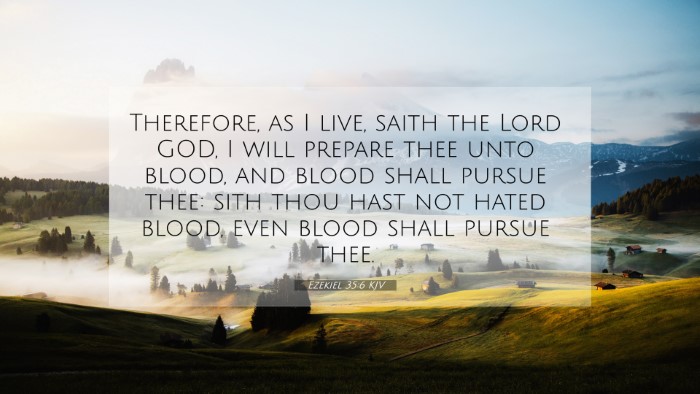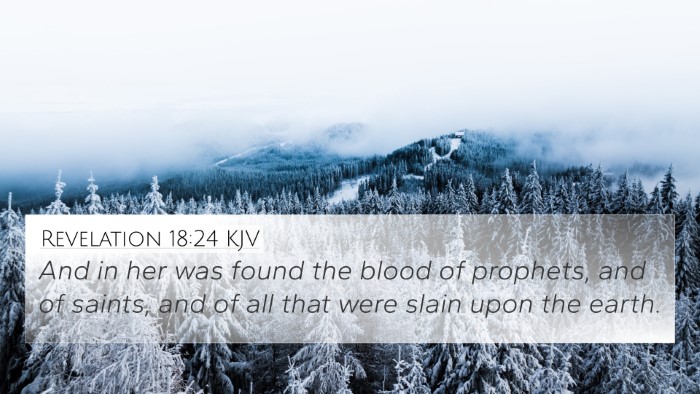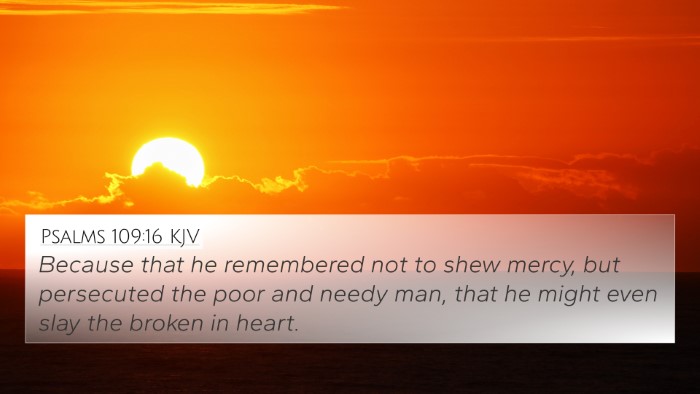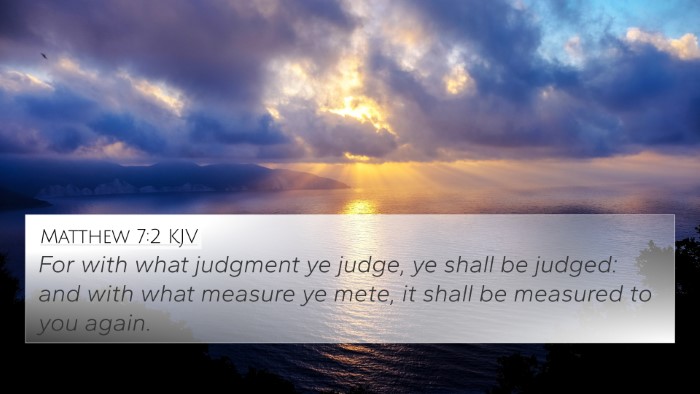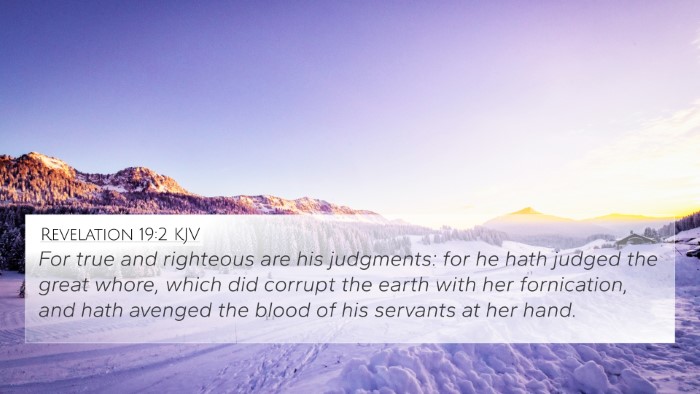Ezekiel 35:6 - Insights and Interpretations
Ezekiel 35:6 states: "Therefore, as I live, says the Lord God, I will prepare you for blood, and blood shall pursue you; since you have not hated blood, therefore blood shall pursue you." This verse is a proclamation of divine judgment against the land of Edom and serves as a warning against the repercussions of violence and bloodshed.
Summary of Meaning
This verse underscores the principle of divine justice, wherein the actions of individuals and nations bring about inevitable consequences. The blood mentioned symbolizes violence, indicating that those who perpetrate harm will themselves face similar outcomes.
Commentary Insights
-
Matthew Henry:
Henry highlights that the passage emphasizes the severity of God’s judgment. The blood that pursues signifies retribution, illustrating that the Edomites, who were culpable of violence, would reap the consequences of their actions. He notes the justice of God in ensuring that those who revel in violence will not escape unpunished.
-
Albert Barnes:
Barnes provides a historical context, explaining that this prophecy was directed toward Edom, a nation notorious for its hostility toward Israel. He elaborates on how the shedding of innocent blood leads to a cycle of vengeance, and thus the phrase "blood shall pursue you" serves as a haunting reminder of this law of retaliation.
-
Adam Clarke:
Clarke discusses the imagery of pursuit in this verse, interpreting it as a clear indication that God's judgments are relentless. He notes that the Edomites demonstrated a lack of remorse for their violent actions, warranting this divine retribution. Clarke additionally draws parallels to the broader biblical theme of divine justice, emphasizing that God fulfills His promises of judgment against unrepentant nations.
Key Themes and Connections
The themes present in Ezekiel 35:6 reflect a broader hermeneutical framework concerning justice, accountability, and the ethical ramifications of one's actions. The verse can be connected through cross-referencing with various other biblical texts that share similar themes of divine retribution and justice.
Relevant Cross-References:
- Genesis 9:6: "Whoever sheds the blood of man, by man shall his blood be shed..." - Establishes the principle of retributive justice.
- Numbers 35:33-34: Discusses the importance of not allowing the land to be polluted by bloodshed, emphasizing accountability.
- Psalm 9:12: "For he who avenges blood is mindful of them; he does not forget the cry of the afflicted." - Reinforces God's role as a judge of justice.
- Isaiah 63:1-4: Describes God's vengeance against His enemies, correlating with the theme of blood and justice.
- Jeremiah 49:7: Contains a prophecy against Edom similar to that in Ezekiel, emphasizing judgment for their actions.
- Matthew 7:2: "For with the judgment you pronounce you will be judged..." - Reflects the biblical principle of reciprocal justice.
- Revelation 16:6: "For they have shed the blood of saints and prophets, and you have given them blood to drink." - A depiction of divine retribution in a eschatological context.
Theological Implications
This verse directs us to reflect on the gravity of our actions and the divine law that governs justice. The reiteration of "blood pursuing blood" not only acts as a warning to Edom but is an admonition to all nations and individuals, drawing attention to the moral decay that results from bloodshed.
Applications for Today
In contemporary discussions of morality, justice, and societal ethics, Ezekiel 35:6 remains poignant. It prompts reflection on how violence in society is discerned through a biblical lens, encouraging communities to seek reconciliation rather than retribution. By understanding the themes of this verse, individuals can explore the connections and implications for their lives today.
Conclusion
Ezekiel 35:6 serves as a potent reminder of the necessity of accountability for one’s actions and the overarching theme of divine justice throughout Scripture. The interconnectedness of biblical texts enhances our understanding and encourages believers to approach their faith with a holistic view of God's justice and grace.
